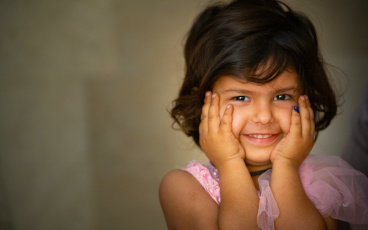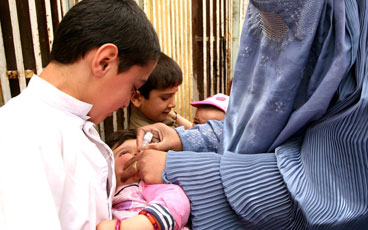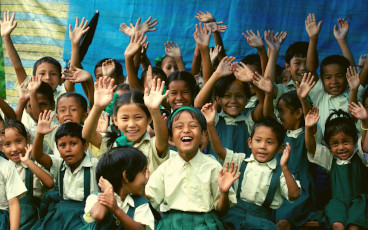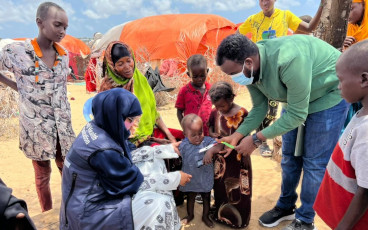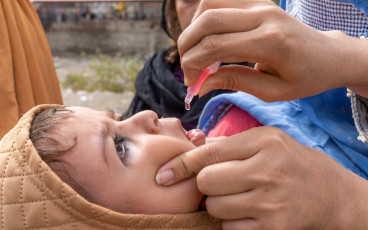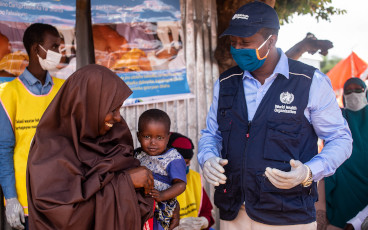Supporting COVID-19 Response: Call 1166 in Pakistan
Polio eradication call centre in Islamabad converted to fight COVID-19.
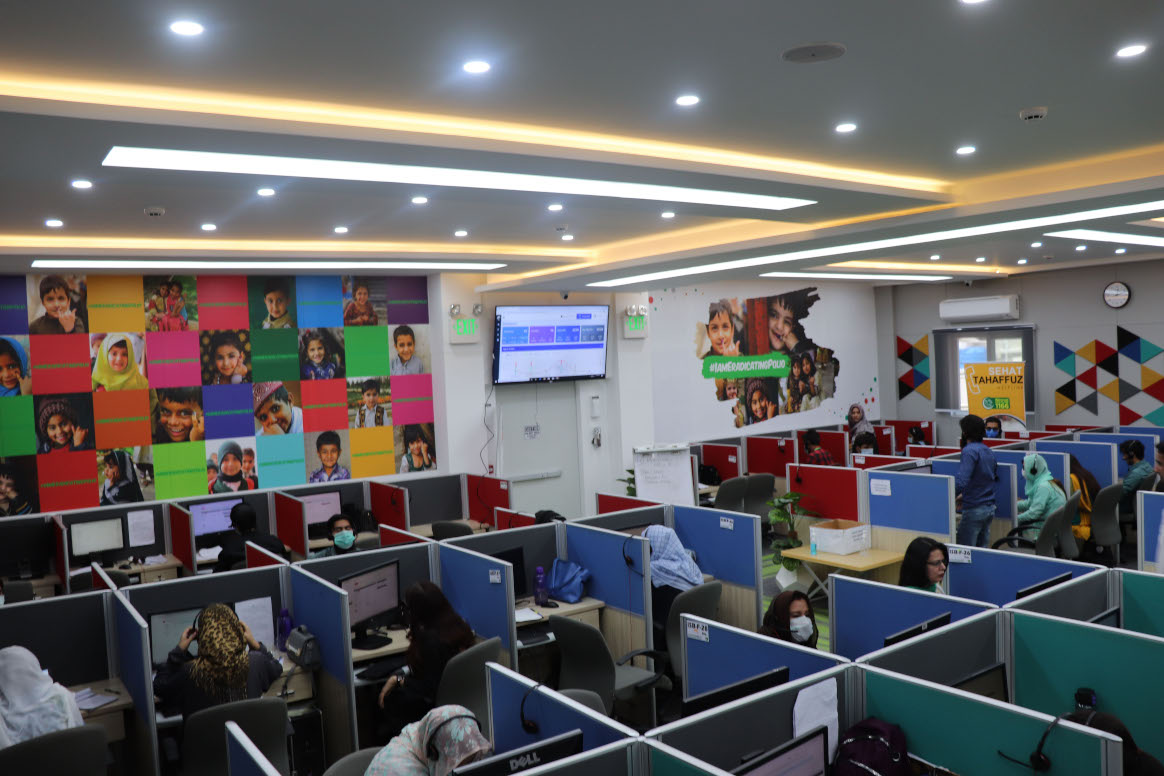
“How can I help you?” Pause. “Have you travelled out of the country recently?” Pause. “Please stay on the line. I am connecting you to a doctor,” says a young woman reassuringly to someone at the other end of the line.
The call operator works at the ‘Sehat Tahaffuz 1166’ COVID-19 Helpline Centre at the National Emergency Operations Centre (NEOC) for Polio Eradication in Islamabad, Pakistan.
Until last month, Sehat Tahaffuz 1166 was a polio eradication helpline to help caregivers share concerns and receive accurate information about polio and other vaccines. As the pandemic spread, the Government expanded the centre to fight COVID-19.
A vital support system during a difficult time
Like many other countries, the global outbreak of COVID-19 poses an enormous challenge to health services in Pakistan. The Sehat Tahaffuz 1166 call centre is increasingly becoming an important platform to listen to the concerns of people, provide correct information, and connect them to a doctor when required.
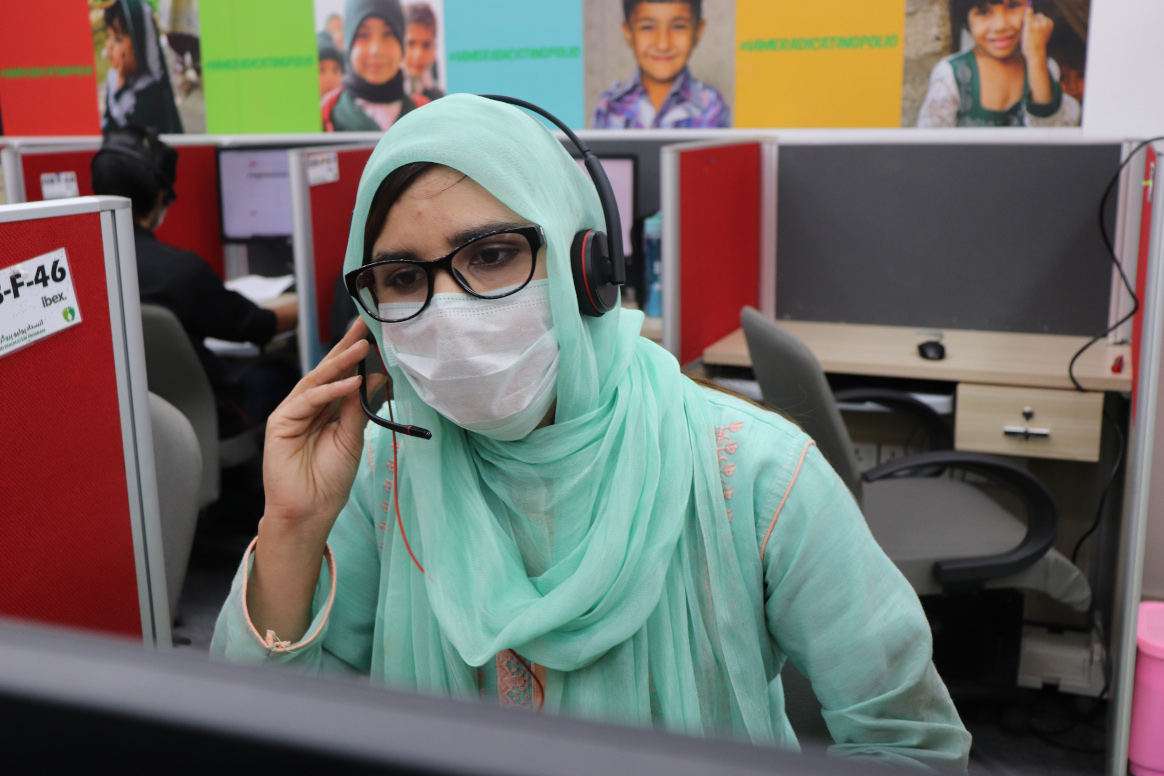
“I received a phone call from a 75-year-old man this morning. He was so scared and confused because of the coronavirus situation. He asked if sunbathing could help him stay protected from the virus,” said Sadia Saleem, a 24 year old helpline agent. “I explained to him the symptoms of the virus, and the preventive measures. He seemed relieved and thanked me,” she added.
Sadia is one of the 55 call agents currently supporting the helpline, which operates in shifts, from 8am to midnight every day, seven days a week.
“I’ve been working for the 1166 helpline since its inception. It’s stressful work but I feel proud that I’m serving the people during this challenging time. In addition to receiving reliable information, I think most people feel some comfort just speaking with someone from the health system,” said Sadia of her experiences.
Alongside the agents, the government has assigned six doctors to support the Helpline. Dr. Rabia Basri is one of them.
“I am forwarded calls that are critical and need expert medical advice. Every day, I receive about forty calls, some twenty minutes long. These are difficult times for everyone. I often advise people about personal hygiene and physical distancing, and if they are having symptoms, help connect them with a hospital for the coronavirus test and further medical support,” said Dr. Rabia.
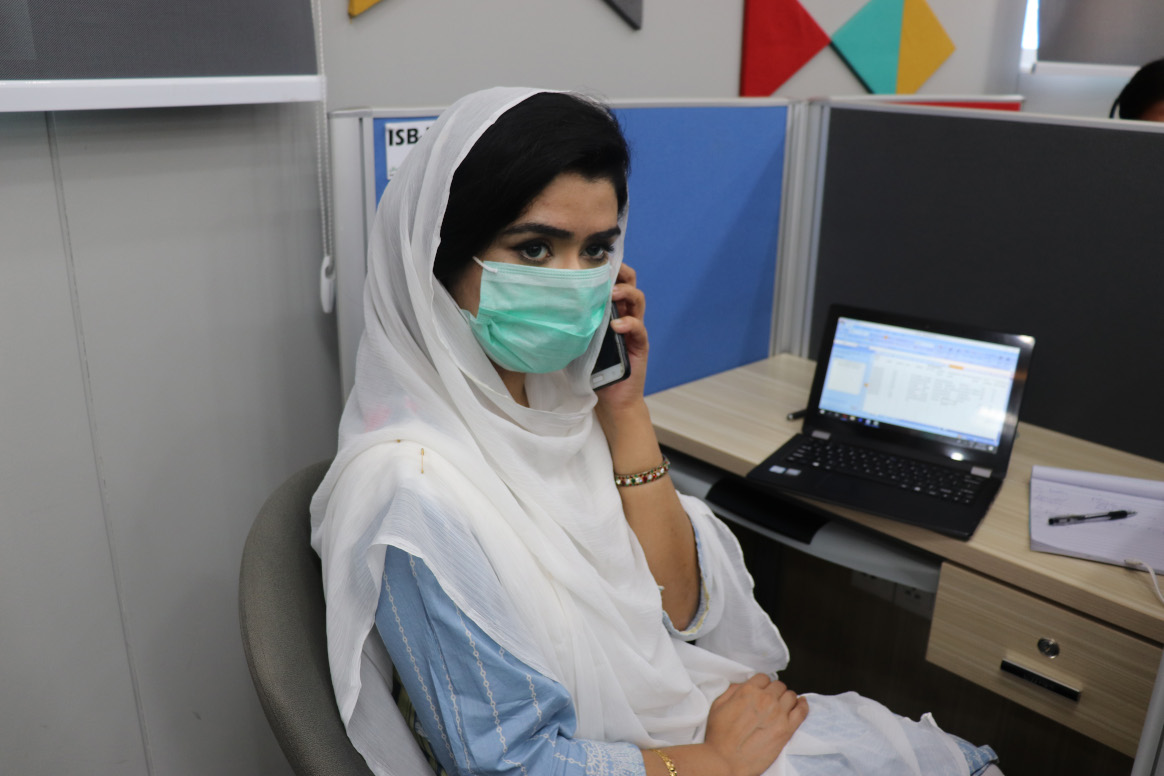
70,000 calls a day
“Initially, we were receiving about a thousand calls a day. During the National Polio Immunization Campaign in February 2020 for example, people were calling to report missed children, clarify doubts about vaccines and lodge complaints when health and vaccine services were not working,” said Huma Shaukat, the Helpline Liaison Officer.
However, since the outbreak of COVID-19, the call volume has increased dramatically, to about 70,000 calls a day.
“Each call agent responds to about 150 callers a day. To increase the capacity of the helpline, thirty more agents have joined to manage the growing number of calls,” added Huma.
Despite adding more agents, the call volume has become unmanageable for the helpline centre. The situation has prompted the government to assign additional resources. The Digital Pakistan initiative of the Prime Minister’s Office is helping recruit an additional 165 agents while the National Institute of Health is assigning ten more doctors to the technical team.
Managing the 1166 helpline centre
“Training and commitment of call agents are very important. Otherwise the helpline will not work,” said Huma. “We have four supervisors managing the team of call agents and support them when required as the work here is highly challenging, especially now with the high number of calls every day.”
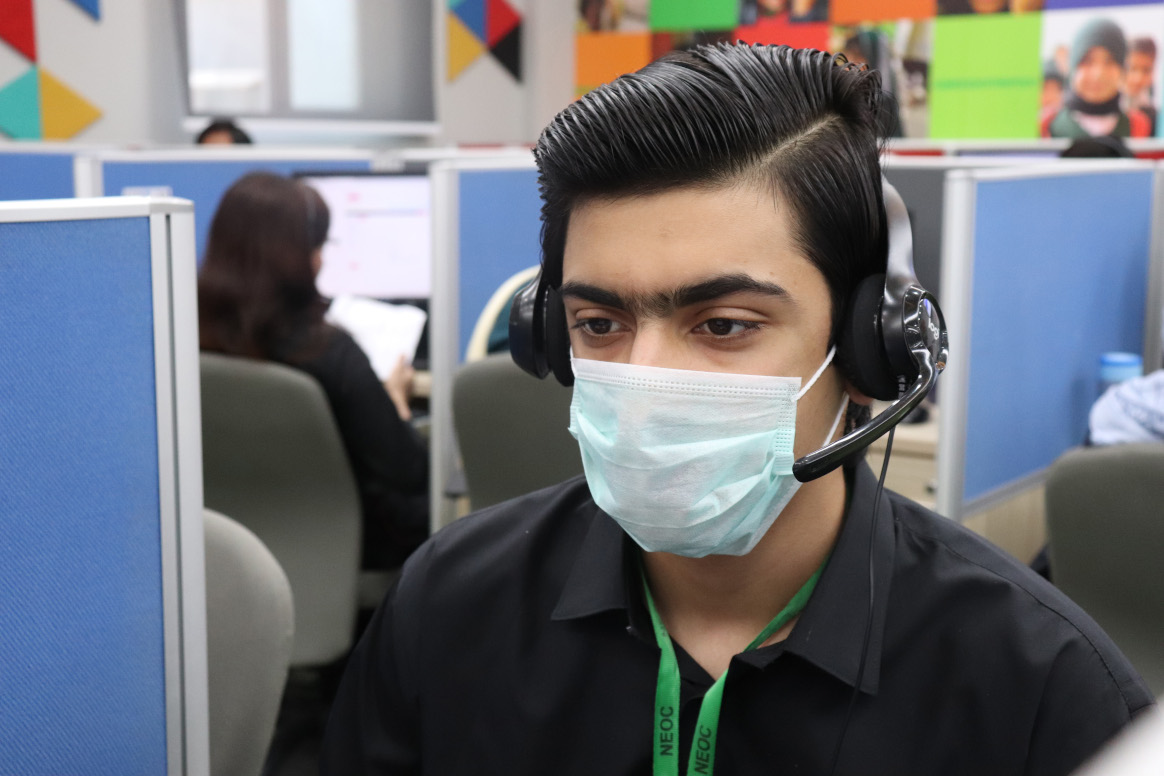
All call agents undergo a comprehensive training on COVID-19 basic information and primary symptoms facilitated by the National Institute of Health, followed by sessions on the helpline technology and interpersonal communication.
“We generate a daily report and share with relevant sections and the helpline management team. This is very important as it helps us review and manage problems, to continue functioning as an efficient helpline supporting people in their time of need,” Huma explained.
With the leadership of the Government of Pakistan and the support of Global Polio Eradication Initiative (GPEI) partners – the United Nations Children’s Fund (UNICEF), World Health Organization (WHO) and Bill & Melinda Gates Foundation (BMGF), the Sehat Tahaffuz 1166 Helpline has become an essential support system for the people of Pakistan.
“GPEI partners are supporting the Government in utilizing existing polio eradication resources for the COVID-19 response in Pakistan. We are striving together to support as much as we can to ensure the health and safety of all children and families in the country during this challenging time,” said Dennis Chimenya, the UNICEF C4D team lead supporting the helpline in Pakistan.


